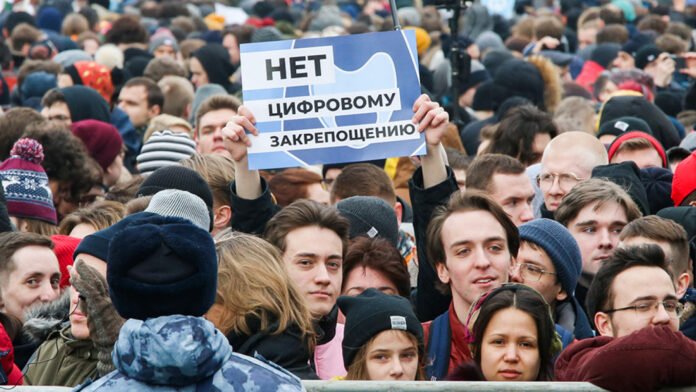Russians are increasingly turning to virtual private networks (VPNs) and other tools to bypass online censorship and access unrestricted internet content. With the Russian government tightening its grip on digital communication platforms, many citizens feel the need to seek alternative methods to freely express themselves and access information.
VPNs, which allow users to encrypt their internet connection and route it through servers in other countries, have become a popular choice for Russians looking to circumvent censorship. By masking their IP addresses and encrypting their data, VPN users can evade government surveillance and access websites and services that may be blocked in Russia.
However, the Russian government has also been cracking down on VPN usage, blocking access to many VPN providers’ websites and requiring internet service providers to block access to VPN servers. Despite these efforts, many Russians continue to find ways to access VPNs, either by using mirror websites or by employing more advanced techniques to evade detection.
In addition to VPNs, Russians are also turning to other tools and methods to bypass online censorship. Some are using encrypted messaging apps like Telegram, which has proven resilient to government attempts to block it. Others are using Tor, a decentralized network that routes internet traffic through a series of volunteer-operated servers, making it difficult for authorities to track users’ online activities.
The Censorship Concern For Russians
The Russian government’s efforts to control the flow of information online have raised concerns among human rights activists and freedom of speech advocates. Critics argue that censorship stifles dissenting voices, limits access to information, and undermines democratic principles. They also warn that censorship can create an environment of fear and self-censorship, where people are afraid to speak out or express their opinions openly.
Despite the challenges posed by online censorship, many Russians remain determined to exercise their right to freedom of expression and access to information. They continue to seek out alternative ways to communicate and access uncensored content, demonstrating a strong commitment to defending their digital freedoms in the face of government repression.
As the Russian government tightens its grip on online communication, concerns about privacy and surveillance have grown among citizens. Many fear that their online activities are being monitored and scrutinized by authorities, leading to self-censorship and reluctance to engage in open discourse.
In response to these challenges, tech-savvy individuals and organizations have been developing innovative solutions to help Russians navigate the digital landscape safely and anonymously. These include tools like decentralized social networks, encrypted email services, and secure messaging platforms that prioritize user privacy and security.
Furthermore, international support for digital freedom in Russia has been increasing, with tech companies, human rights organizations, and foreign governments providing resources and assistance to help Russians circumvent censorship and protect their online privacy. Efforts to raise awareness about internet freedom issues and advocate for policy changes at the national and international levels are also gaining momentum.
Despite the obstacles posed by government censorship, many Russians remain optimistic about the future of online freedom in their country. They continue to advocate for their rights, push back against censorship, and seek out alternative channels for communication and information sharing.
In addition, the struggle for digital freedom in Russia is ongoing and dynamic, with individuals and organizations constantly adapting to new challenges and opportunities. While the government may seek to control the flow of information online, the resilience and determination of internet users to safeguard their rights and freedoms remain unwavering. As technology continues to evolve and new threats emerge, the fight for digital freedom in Russia will continue to be a critical battleground for the protection of human rights and democratic values.

